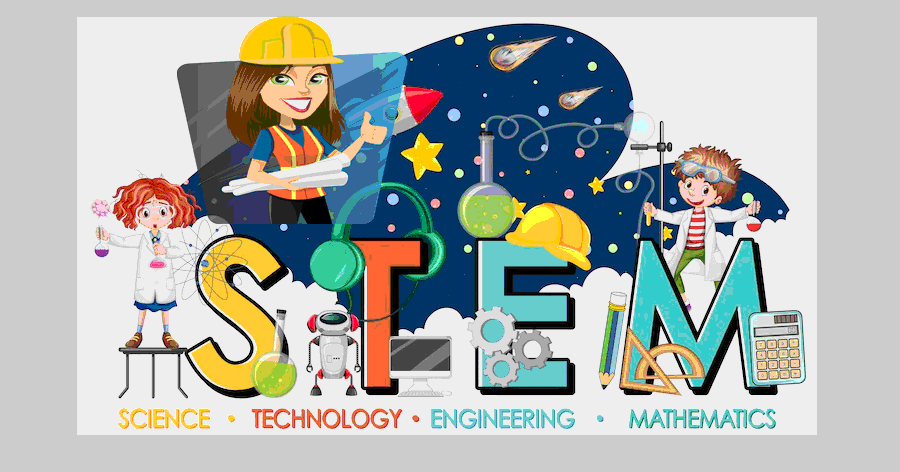
STEM Education Career Paths, Options & Outlook
Introduction
As work and industries continue to shift, careers in science, technology, engineering, and math (STEM) stand out more than ever. These fields drive economic growth and societal progress, offering unique, well-paying, impactful career paths.
This article serves as a comprehensive guide to STEM careers, aiming to provide a thorough understanding of the diverse opportunities within these fields.
Our target audience includes high school and college students exploring career options, professionals contemplating a shift into STEM fields, parents and educators seeking guidance, and anyone intrigued by the prospects of science and technology careers.
Understanding STEM Careers
STEM careers encompass various professions in science, engineering, technology, and mathematics. These sectors are integral to driving innovation, competitiveness, and economic growth. They influence everything from our daily lives to the frontier of human knowledge, making them among the high-paying STEM careers with growth potential.
STEM careers are diverse, exciting, and in high demand. They offer multiple opportunities to make meaningful contributions to society while securing personal and professional growth.
In-demand STEM Professions: Growth Potential and Outlook
With rapid technological advancements and increasing societal challenges, the demand for STEM professionals is rising. The emerging fields in STEM and their career prospects are vast and dynamic, promising a vibrant future.
Some of the fastest-growing STEM fields include:
-
Artificial Intelligence and Machine Learning
-
Cybersecurity
-
Data Science
-
Environmental Science
-
Biomedical Engineering
These fields are projected to grow significantly in the coming years, offering in-demand STEM professions for the future.
Exploring Career Paths in STEM: Options and Prospects
There are many career options in science, technology, engineering, and mathematics. Let's explore some of them:
-
Science: Careers in science span many disciplines, such as Physics, Chemistry, Biology, and geology. Job roles include laboratory scientists, researchers, and scientific consultants.
-
Technology: From software development to cybersecurity, technology careers are booming. Professionals can find opportunities as software developers, IT managers, systems analysts, and more.
-
Engineering encompasses various subfields, such as civil, mechanical, electrical, and chemical. Engineers design, build, and maintain the world around us.
-
Mathematics: Careers in mathematics are not just about numbers. They include roles like statistician, actuary, data analyst, etc.
These are just a few examples; the list of STEM careers is exhaustive and continually expanding.
Education and Degree Programs for STEM Careers
Education is a crucial stepping stone into the world of STEM. Here are the educational requirements for various STEM professions:
-
Science Careers: Typically require a bachelor's degree in a specific field of science for entry-level positions. For more specialized roles, a master's or a Ph.D. may be necessary.
-
Technology Careers generally require a bachelor's degree in computer science, information technology, or a related field. Some roles may also require specific certifications.
-
Engineering Careers: Require at least a bachelor's degree in engineering. Licensing may be required for certain roles.
-
Mathematics Careers: Entry-level jobs typically require a bachelor's degree in mathematics or statistics. Higher-level roles may require a master's degree or Ph.D.
Many universities offer specialized degree programs tailored to specific STEM careers, making the journey more accessible for aspiring STEM professionals.
Emerging Fields and Future Trends in STEM
The world of STEM is dynamic, with new fields emerging as technology and societal needs evolve. Some notable emerging fields include:
-
Quantum Computing: With potential applications ranging from cryptography to drug discovery, quantum computing promises a revolution in computational capabilities.
-
Sustainable Engineering: As the world grapples with climate change, engineers specializing in sustainable practices are in high demand.
-
Bioinformatics: This field combines biology, computer science, and mathematics to analyze and interpret complex biological data, a crucial aspect of modern healthcare and biotechnology.
-
Robotics and Automation: As businesses look for efficiency, robotics, and automation engineers are sought to design and maintain automated systems.
Skills and Qualifications for Success in STEM
In addition to academic qualifications, specific skills can bolster success in STEM careers. These include:
-
Problem-solving skills: STEM professionals often face complex challenges requiring innovative solutions.
-
Analytical skills: Analyzing data and utilizing it to drive decisions is crucial in STEM careers.
-
Technical skills: Depending on the specific career, various technical skills may be required.
-
Communication skills: Even in highly technical roles, communicating effectively is vital.
-
Creativity: Innovation is at the heart of STEM, making creativity an important asset.
Navigating Challenges in STEM Careers
Pursuing a career in STEM is not without its challenges. These include rigorous academic demands, the constant need for upskilling, and staying updated with rapidly evolving fields. However, these challenges can be navigated successfully with passion, persistence, and the right support.
STEM Resources and Organizations
Several organizations support STEM professionals, offering resources such as networking opportunities, professional development, and more. These include the National Science Foundation (NSF), the Association for Women in Science (AWIS), the National Society of Black Engineers (NSBE), and the Society of Hispanic Professional Engineers (SHPE), among others.
Diversity and Inclusion in STEM
While progress has been made in recent years, diversity and inclusion remain essential issues in STEM. Continued efforts are needed to ensure equal opportunities and representation for all, regardless of gender, race, ethnicity, or socioeconomic background.
Conclusion
With a dynamic range of fields, competitive salaries, and the opportunity to contribute to societal progress, STEM careers offer exciting prospects for those ready to embark on this journey. As Bill Nye famously said, "Science is the key to our future, and if you don't believe in science, then you're holding everybody back."
By staying informed and prepared, you can navigate the world of STEM confidently and effectively, carving your path to success. Whether you're a student, a professional contemplating a career switch, or an educator, we hope this guide to STEM job opportunities and prospects aids your journey. The future of STEM is bright, and it awaits you!





